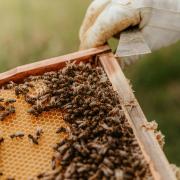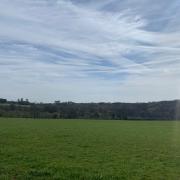
At the beginning of lockdown, my local park Richmond Park, along with Bushy and Greenwich Parks closed their gates to traffic amid fears that people would not socially distance. Soon after, Richmond Park also closed to cyclists due to many not following social distancing guidelines, fears of transmission of the virus through droplets, and the risk of an excess burden on the NHS. While cycling should be encouraged in a post-lockdown and a post-coronavirus world, the closure of the park to cars raised the question of do we really need to reopen the park to cars?
For many people, the daily exercise permitted by the government meant different things. For me, it usually meant a walk through the park with my parents. The lack of cars certainly made a difference, as although the lockdown had many shortcomings, the beauty of nature was certainly not one of them. The deer were able to cross the road and we even saw rabbits and birds, which that we had never seen before in the park. While the empty roads made it easier for social distancing, when cyclists returned, it made it easier and safer for the cyclists to ride through the park.
Additionally to walking, I picked up skateboarding as a hobby. When restrictions eased, my friends and I were able to meet and skate together at a safe distance. This was made a lot easier by the lack of cars on the road which reduced the risk of accidents as well as making it more manageable to get around. Once the park lifted the guidelines on bikes, many more people were able to meet up to go on a socially distanced bicycle ride. Therefore, by not allowing cars in the park, the government encourages people, particularly teenagers, to adopt healthy hobbies like skateboarding, running and cycling that improve their health and social life.
I ran an online survey among 50 people of different ages who live in the borough of Richmond-Upon-Thames or nearby, and of these approximately 80% took advantage of using the car-free park to exercise at least once a week during the lockdown period, showing that the park is a place valued by many in the area. I also asked in the survey if they would like to see a ban on cars in Richmond Park, and a surprisingly high 62% said yes.
Many commented that, without cars, it was easier to cycle through the park. Some cited environmental reasons: that nature was less disturbed, and, in Richmond Park, this famously includes the deer who make their home there. Some also mentioned that, by banning cars in Richmond Park, you encourage other more environmentally sound ways to commute to work, such as by bike or by public transport. However, some people disagree with not being able to drive through the park, as traffic in Richmond, Sheen and Kingston is notoriously bad, and the closure of the park would just make that issue worse. This, of course, may lessen as, when coronavirus eases, many people may return to public transport.
Overall, parks should not be for cars, but for exercise and enjoying the beauty of nature. They should also be a safe place in which the community can enjoy some respite from the hustle and bustle of everyday life.
By Rebecca Nelmes, St Catherine's School, Twickenham



























